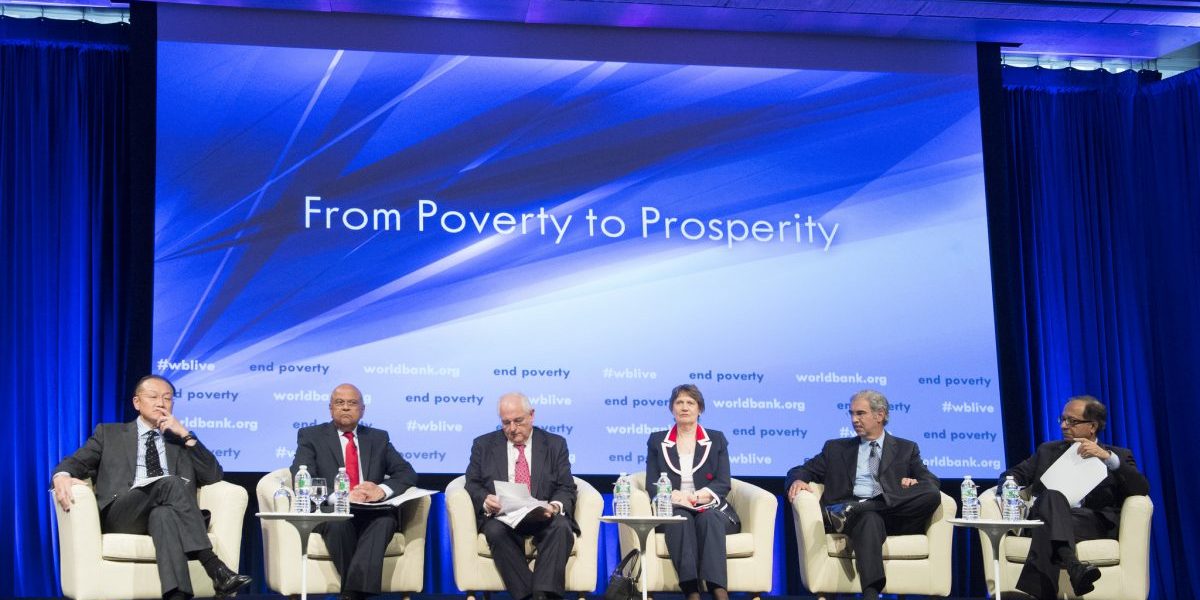But severe poverty, a worsening income gap and uncertainty about the sustainability of economic growth are the real challenges that both face in the future. Notwithstanding the recent positive growth, the World Bank and International Monetary Fund reforms adopted by Latin American countries in the early 1990s – labelled as the Washington Consensus – have failed to reduce poverty and income disparity. SA has had a similar experience. Although stable macroeconomic fundamentals seem to be in place, huge social inequalities and high poverty rates continue.
The recent growth in Latin America is based on increases in commodity prices and the export of primary products. Growth needs to have a more solid foundation if it is to be sustainable and reduce poverty and inequality.
This picture is not unfamiliar in SA, where poverty and inequality are on a par with the worst in Latin America. The richest 10% of the population in Latin America accounts for 46% of total income, while the poorest 10% accounts for 1,6% of total income – making it the most unequal region in the world.
Unemployment, which according to surveys is regarded as the most serious problem in both Latin America and SA, is roughly 35% in SA, soaring ahead of the Latin American official average of 8%. However, there is growing concern – the rate has increased over the past 20 years, and the growing informal sector “employs” 52% of the active work force. Thus, real unemployment in Latin America is on a par with SA’s.
Sporadic growth is not enough to influence broad-based structural changes or to ensure the trickle-down of wealth to the masses. Rather, long-term sustainable growth (more than 5% annually) and consistent high levels of foreign direct investment are needed. Both Latin America and SA fall short on both counts when compared with other emerging markets, especially Asia. Asia has far outstripped Latin America and Africa in economic growth in recent years. Also, between 1991 and 1996 Asia averaged $59,5bn in foreign investment a year, compared with Latin America’s $27bn and Africa’s $4,6bn.
Leaders in Latin America blame the neoliberal reforms stipulated in the Washington Consensus for the lack of real economic growth and progress. With little or no growth in per capita income over the past 10 years, and worsening economic volatility through market liberalisation, the consensus appears to have failed and reform fatigue has set in.
This has launched a new wave of centre-left politics in Latin America, opposed to western-style free market economics and US-dominated globalisation. It is true that other countries, particularly in Asia, have achieved relative success without undergoing a “set menu” of reforms. But it is also true that these countries liberalised in their own way within a nondemocratic political system. Such an approach would simply not work in Latin America, one of the most democratised regions in the world.
Some polls do suggest that democracy is at risk in Latin America. For example, the Latinobarometro survey last year revealed that only 29% of Latin Americans were satisfied with democracy in their country and 55% would prefer an authoritarian regime over a democratically elected one if it delivered economic prosperity. However, at the height of social chaos in Argentina and Venezuela recently, the citizens and governments chose to follow the democratic processes stipulated in their constitutions. This illustrates another similarity between Latin America and SA. Despite the results of selected polls or the opinion of certain interest groups, democracy is firmly entrenched and is highly valued.
The problem in Latin America is not one of failing democracies or failed reforms, but rather one of weak and poorly performing governments, which are unable to implement reforms effectively and consistently, thus fostering corruption. The rising left in Latin America faces an enormous challenge. While it criticises the neoliberal economic orthodoxy, it fails to offer a viable economic alternative that will deliver foreign investment required for sustained growth.
Ideological debates in Latin America and Africa are taking place at a time when interest in these regions is dwindling, and they are being overshadowed by the success of their competitors in eastern Europe and Asia – most notably India and China.
A new generation of reforms, unassociated with the damaged Washington Consensus brand, needs to be developed. New reforms must improve the relative competitiveness of countries in Latin America against those in Asia and other emerging regions. They need to ensure policy congruency, moving away from factor-based exports that are vulnerable to international fluctuations, and diversify beyond the region’s dependence on natural resource exports by developing value-added industries. Such upgrading will also help to address the core challenges of poverty and inequality in Latin America in the long run.
The state has an active role to play, especially in education and skills development. The state is also instrumental in creating an investment-friendly environment that is bureaucratically sound and legislatively strong.
Much emphasis in the Washington Consensus reforms was placed on market liberalisation and economic stability using short-term measures such as pegged currencies or cheap labour. By contrast, reforms should now focus on the long term. Policy makers need to be aware of the changing environment and adjust to maintain a competitive advantage over other nations.
Such reforms are also applicable to Africa. The structural adjustment programmes for Africa were largely modelled on the principles of the Washington Consensus. Rising opposition to these principles needs to be considered through the lessons from Latin America, where the incomplete implementation of reforms is possibly more to blame than the reform process itself.
Debate in Latin America and SA needs to move away from ideological rigidity to policy options for improving competitiveness against other countries. This should include a focused agenda to address the core socioeconomic challenges that are hampering real growth. After all, sound fundamentals and economic growth are worth little if they do not help to reduce poverty and create a more equal society.








